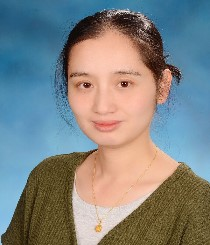ZHANG Yan

ZHANG Yan
Ph.D.
Principal Investigator
Laboratory of Cancer Immunotherapy
E-mail:zhy3331a@shsmu.edu.cn
Personal Introduction
Our laboratory has focused on the fundamental mechanism of immune recognition and cancer biology, including both mechanisms that uncover the link between autoimmunity and cancer immunity, and on translating the new concept for production of new generation of cancer immunotherapeutic. We will focus on the most pressing unanswered questions in cancer immunotherapy, including a deeper understanding of the mechanisms of 1) tumor immunity and autoimmunity 2) response and resistance to current immunotherapy strategies, to help develop safe and effective cancer immunotherapy, including new antibodies, new targets, new compounds and combinational therapeutics.
Biography
Dr. Zhang received her bachelor degree in Biotechnology from China Pharmaceutical University. She completed her Ph.D. training at Nanjing University and carried out her postdoctoral training at the National Institutes of Health Cancer Institute (NIH/NCI), Bethesda.
From 2016 to 2020, she worked as a staff scientist/faculty associate at the National Children's Hospital (CNMC) and the University of Maryland School of Medicine, Baltimore. In 2020, she joined the Shanghai Institute of Immunology, Shanghai Jiao Tong University School of Medicine as a principal investigator. Her research interests have focused on both fundamental mechanisms that uncover the link between autoimmunity and cancer immunity and on translating the new concepts for the production of better therapeutics of cancer immunotherapy. Relevant studies have been published in Blood, Cell Res, Sci Immunol, Nat Immunol, Nat Commun, etc.
Current Grant Support
Uncoupling autoimmune side effects from efficient cancer immunotherapy by targeting regulatory T cells. Funding Source: National Natural Science Foundation of China, Grant Number: 82071866, 2021/01-2024/12.
Synergistic effect of TIGIT monoclonal antibody on CTLA-4-targeted cancer immunotherapy. Founding Source: Science and Technology Commission of Shanghai Municipality, Grant Number: 22ZR1454800, 2022/04-2025/03.
Selected Publications
Pan Jia, Xiang Li, Xuelei Wang, Liangjiao Yao, Yingying Xu, Yu Hu, Wenwen Xu, Zhe He, Qifan Zhao, Yicong Deng, Yi Zang, Meiyu Zhang, Yan Zhang#, Jun Qin# & Wei Lu#. ZMYND8 mediated liquid condensates spatiotemporally decommission the latent super-enhancers during macrophage polarization. Nat Commun 2021 11 11;12(1).
Wei Z*, Zhang Y*, Chen J*, Hu Y*, Jia P, Wang X, Zhao Q, Deng Y, Li N, Zang Y, Qin J, Wang X#, Lu W#. Pathogenic CARD11 mutations affect B cell development and differentiation through a noncanonical pathway. Sci Immunol, 2019, 29;4(41).
Zhang Y*#, Du X*, Liu M*, Tang F, Zhang P, Ai CX, Fields J, Sundberg E, Latinovic O, Devenport M, Zheng P# and Liu Y#. Hijacking Antibody-induced CTLA-4 Lysosomal Degradation for Safer and More Effective Cancer Immunotherapy. Cell Res, 2019, 29:607-629.
Du X*, Tang F*, Liu M, Su J, Zhang Y, Wu W, Devenport M, Lazarski C, Zhang P, Wang X, Ye P, Wang C, Hwang E, Zhu T, Xu T, Zheng P# and Liu Y#. A reappraisal of CTLA-4 checkpoint blockade in cancer immunotherapy. Cell Res, 2018, 28(4):416-432.
Zhang Y, Choksi S, Chen K, Pobezinskaya Y, Linnoila I, Liu ZG. ROS plays a critical role in the differentiation of alternatively activated macrophages and the occurrence of tumor associated macrophages. Cell Res, 2013, 23:898–914.
Zhang Y, Morgan MJ, Chen K, Choksi S, Liu ZG. Induction of Autophagy is Essential for Monocyte-Macrophage Differentiation. Blood, 2012, 119(12):2895-2905.
Li T, Morgan MJ, Choksi S, Zhang Y, Kim YS, Liu ZG. MicroRNAs modulate the noncanonical transcription factor NF-kappaB pathway by regulating expression of the kinase IKKalpha during macrophage differentiation. Nat Immunol (2010) 11(9):799-805.




